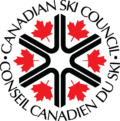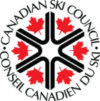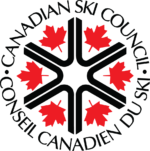Advocacy
An important part of the Council’s mandate is undertaking lobbying activities that are beneficial to skiing and snowboarding in Canada as identified by our member organizations and associate members as well as to provide ski and snowboard industry information to the media, ski/snowboard and non-ski/snowboard related businesses and the general public.
CSC Ski Helmet Policy Statement
The Canadian Ski Council recommends wearing helmets for skiing and riding. Skiers and snowboarders are encouraged to educate themselves on the benefits and limitations of helmet usage. The primary safety consideration, and obligation under the Alpine Responsibility Code, is to ski and ride in a controlled and responsible manner.
The Canadian ski industry has invested in all aspects of the sport to make it as safe as possible in an attempt to minimize injuries. However, the sport takes place in a challenging and exciting outdoor environment, which is a large part of why people ski. Helmets can help reduce the risk and severity of injuries in many situations, but cannot prevent injuries when skiers and snowboarders ski excessively fast or out of control. Skiers and snowboarders who ignore the Alpine Responsibility Code put themselves, and others, at greater risk.
Ski helmet usage is increasing through education programs and awareness of the benefits of wearing a helmet. The Canadian Ski Council and its member regional ski area operator associations (Canada West Ski Areas Association, Ontario Snow Resorts Association, Quebec Ski Areas Association and Atlantic Ski Area Association) will continue to promote helmet usage and provide educational materials that identify the benefits and limitations of helmets. Helmets are available for rent or sale at all ski areas across Canada.
The Canadian Ski Council will continue to work with partners in government and other organizations to make skiing and snowboarding as safe as possible. Educating skiers and snowboarders about participating safely is the proper solution to minimizing injuries.
1. Canadian ski areas and Ski Associations have achieved significant success in promoting helmet usage amongst Skiers and Snowboarders.
- Snow sports helmet usage in Canada increased from 32% in 2002-2003 to 83.1% in 2011-2012.
- Helmet usage amongst young Canadian skiers & snowboarders is now approaching 100%:
- 95.5% of children under 14 wear helmets.
Source: Canadian Ski Council
2. Snow sports helmet usage should be a matter of personal choice.
We believe that skiers & snowboarders are capable of making responsible choices with respect to their safety on the ski slopes.
3. A snow sports helmet is only one component of a safe approach to skiing & boarding.
The Alpine Responsibility Code promotes ten safety practices that collectively help maximize the potential for safe skiing & boarding.
We believe that promoting a comprehensive set of safe skiing and snowboarding practices is a more effective approach to maximizing safety than legislation of a single safety measure (e.g. snow sports helmets).
4. Snow sports helmets are only designed to provide protection against lower speed collisions.
Ski Helmets are certified to provide protection at speeds up to 23 km/h (Snell RS-98 & ASTM). However, skiers & snowboarders often ski and ride at speeds greater than this.
For more information about helmet usage in Canada, please contact Paul Pinchbeck, President and CEO Canadian Ski Council at 905-856-4754 or the ski area operator association in your region including: Christopher Nicholson, President and CEO at Canada West Ski Areas Association (778-484-5535), Kevin Nichol, President and CEO at Ontario Snow Resorts Association (705-443-5450), Yves Juneau, President at Quebec Ski Areas Association (450-765-2012 ext 107) or Jordan Cheney, President at Atlantic Ski Area Association (902-548-2089 x 223).
[1]This policy has been endorsed by the following organizations: Canada West Ski Areas Association, Atlantic Ski Area Association, Ontario Snow Resorts Association, Quebec Ski Areas Association and Canadian Ski Patrol.


